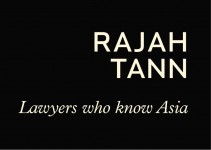Introduction
On 27 March 2015, the Industrial Relations (Amendment) Act 2015 was gazetted to come into operation on 1 April 2015.
The amended Industrial Relations Act provides for a wider representation of executive employees by recognised rank and file trade unions both collectively, and on an individual basis. This is subject to certain limitations which will be elaborated on below.
In this update, we visit the key changes that employers can expect as a result of the above and highlight the steps that employers can take to deal with the amendments to the legislation.
Wider Representation Of Executive Employees
From 1 April 2015, recognised rank and file trade unions will be allowed to provide a wider scope of representation for most executive employees.
However, executive employees who hold roles that perform the functions listed here remain excluded from this wider representation:
1. hold senior management positions or perform such duties;
2. exercise decision-making powers on any industrial matters;
3. represent their employer in the negotiation of industrial matters;
4. have access to confidential information relating to budget or finances; or
5. perform any other function, duty or power which may give rise to a real or potential conflict of interest if he/she is represented by the trade union.
This is in recognition of the fact that such executive employees perform roles and responsibilities that are likely to give rise to conflicts of interest and will undermine the effective operations of the business if recognised rank and file trade unions are allowed to represent them. Apart from these executive employees, rank and file trade unions will be able to represent all other executive employees in negotiations with a view to arriving at collective agreements.
In addition, the scope of individual representation has been expanded to include issues relating to reemployment after retirement. From the limited scope of representing executive employees in breaches of employment contracts, retrenchment benefits, unfair dismissal and victimisation, rank and file trade unions can now negotiate with the employer to resolve re-employment disputes including:
1. The denial of re-employment on the basis that the employee does not fulfil the re-employment eligibility criteria;
2. The denial of re-employment on the basis that there is no suitable vacancy available for the employee; and
3. The reasonableness of any terms and conditions of re-employment offered by the employer or of the amount of any employment assistance payment offered to the employee.
Notwithstanding the above, matters which are of the employer’s prerogative (i.e. promotion, transfer, employment, termination, dismissal and assignment of duties for employees) will generally not be covered under the scope of collective representation.
Amendments To Other Legislation
As a result of the Industrial Relations (Amendment) Act 2015 coming into operation, the Retirement and Re-employment Act and the Trade Unions Act will also be amended to ensure consistency with the amended Industrial Relations Act.
For the Retirement and Re-employment Act, amendments will be made to allow such rank and file trade unions to represent executive employees individually in proceedings before the Commissioner for Labour on re-employment claims.
With regard to the Trade Unions Act, amendments will be made to give effect to the wider scope of collective representation for executive employees introduced by the amendments to the Industrial Relations Act.
What Employers Can Do
Memoranda Of Understandings
With the focus on tripartism in Singapore, employers and businesses are encouraged to actively engage trade unions as partners and to work together on matters relating to trade disputes and union representation. In this regard, the Tripartite Guidelines1 released by the Ministry of Manpower (“MOM”) and their tripartite partners on 26 November 2014 have set out guidelines on how employers can work with trade unions to provide clarity and structure regarding the representation of executive employees.
Depending on the company’s processes and operations, employers who already have unionised employees may wish to continue with the existing Collective Agreement or Memoranda of Understandings (“MOUs”), choose to review and update the existing arrangements, or even establish separate MOUs specifically for its executive employees.
The MOUs for executive employees can specify the following:
1. The classes and criteria of eligibility for executive employees to enjoy representation;
2. A provision to allow the employers and unions to conduct appropriate review to the MOUs;
3. An appeal or grievance procedure to settle executive employee grievances expeditiously at an organisational level;
4. The sharing of information between employers and unions to facilitate discussion on matters relating to the representation of executive employees; and
5. A provision to refer disputes to the MOM for conciliation, in the event the disputes related to the implementation of the MOUs cannot be resolved at the organisational level.
Conditions Of Appointment
Separately, and as a form of balance, it is no longer an offence for an employer to require, as a condition of appointment or promotion to a position of an excluded executive employee, that an employee not be an officer or member of a rank and file trade union. Given the expanded scope of representation accorded to executive employees, this enables employers to take proactive steps to avoid the situation where their executive employees are placed in a position of conflict by virtue of the opposing interests of their executive functions and duties, and their representation by a trade union.
In this regard, employers are advised to review the roles and responsibilities of their executive employees and consider whether it is necessary to revise their employment contracts or provide a supplemental letter to impose such conditions on relevant employees.
Nevertheless, it is still an offence for an employer to offer inducements, such as financial advantages, to persuade employees not to join trade unions.
Concluding Words
We have highlighted above the key changes brought about by the amendments to the Industrial Relations Act. Given the wider scope of representation available to executive employees, employers may wish to review their current employment arrangements and policy on unions for relevancy, and decide if changes are necessary.
End Notes:
1 The Tripartite Guidelines On Extending The Scope Of Union Representation For Executives and The Tripartite Guidelines On Expanding The Scope Of Limited Representation For Executives
For further information, please contact:
Kala Anandarajah, Partner, Rajah & Tann
kala.anandarajah@rajahtann.com
Abdul Jabbar, Partner, Rajah & Tann
abdul.jabbar@rajahtann.com
Desmond Wee, Partner, Rajah & Tann
desmond.wee@rajahtann.com
Mohammed Reza, Partner, Rajah & Tann
mohammed.reza@rajahtann.com
Jonathan Yuen, Partner, Rajah & Tann
jonathan.yuen@rajahtann.com






